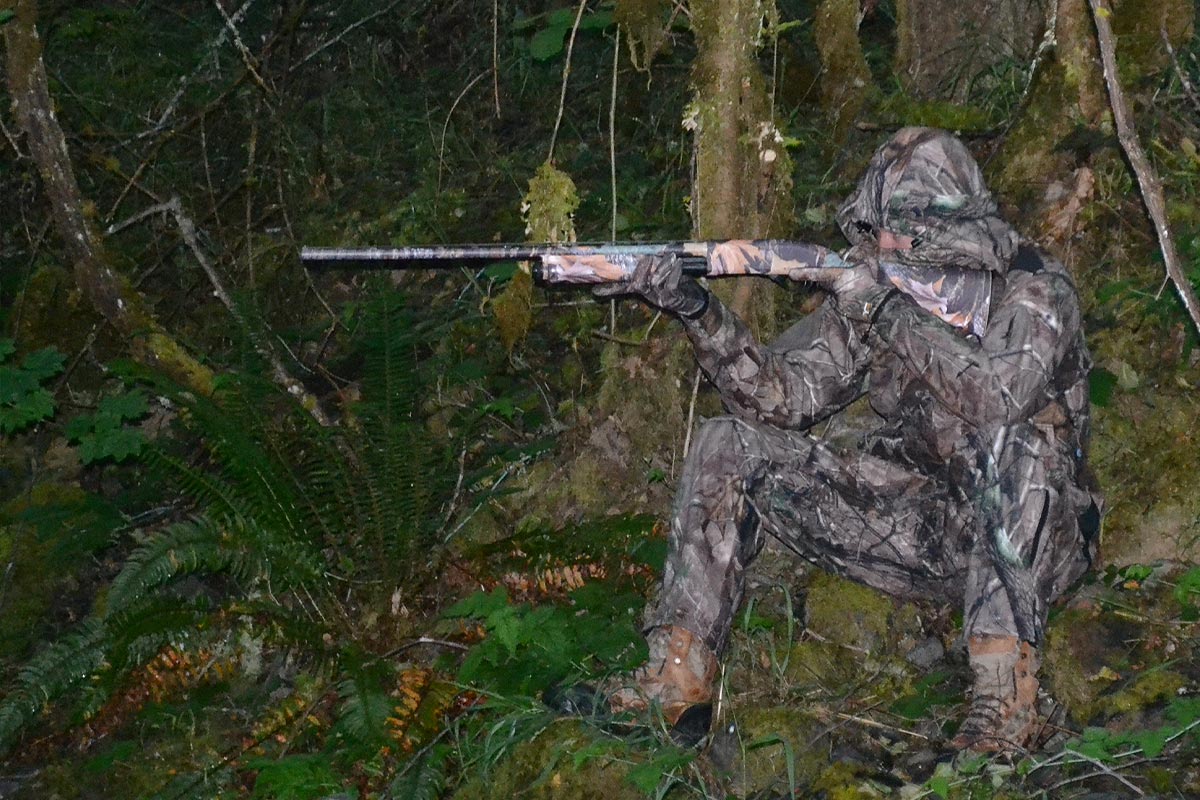What Should you Check before Choosing a Firearm for Hunting

Hunting is something humans have done for as long as we have existed. There is a reason we are called apex predators. Hunting used to be a way of getting food, having fun, and having a connection with nature for centuries.
As we have evolved, we have gotten better tools for hunting. One such highly efficient tool is a firearm. Choosing the right firearm isn't a one-size-fits-all deal. It's like finding the right tool for the job, and there are many factors to consider.
Whether you're a seasoned hunter or just starting your hunting journey, the firearm you choose can make or break your experience. So, let's dive into what you need to know in order to make an informed decision.
1. Get to Know Your Game

First things first, you've got to think about one of the most important factors: what you're hunting. A job to be well done needs the right tool. Game animals have different sizes, habits, strengths, and vulnerabilities, so your firearm needs to match up. Here are some examples of how to tailor your choice of firearm for the target of your choice:
Small Game
- You'll want a lightweight, maneuverable firearm with small-caliber chambers if you're hunting small game/critters like rabbits, squirrels, or birds.
- .22 rimfire rifles, shotguns, or smaller caliber handguns are commonly used for this and are good options to choose from.
Big Game
- You'll need a more powerful, potent, and accurate firearm for bigger games like hunting deer, elk, or bear.
- Consider factors like the range you'll be hunting and the terrain you'll encounter.
- Bolt-action, lever-action rifles, and shotguns with slugs are often favored for big game hunting.
Waterfowl
- Hunting waterfowl like ducks and geese needs a shotgun loaded with specific ammunition designed for waterfowl hunting.
- Shotguns with interchangeable chokes can help you adapt to different situations.
Predators
- You'll need a firearm that combines accuracy and versatility when hunting predators like coyotes or wolves.
- Bolt-action, semi-automatic, and specialized predator hunting rifles are solid choices.
2. What’s Your Preferred Hunting Style

Your hunting style can be all over the map, from stalking through thick woods to sitting in a blind with a view of a field or calling in game. Your choice of firearm will depend on how you like to hunt. Here are some of the scenarios:
Bolt-Action vs. Semi-Automatic
- Bolt-action rifles are ideal for long-range and precision hunting because they are super accurate and reliable.
- Semi-automatic rifles are handy when you need speed and offer faster follow-up shots.
Shotgun or Rifle
- You’ll need a shotgun for close-range and fast-moving targets.
- You’ll need rifles to excel at hunting from longer distances.
Handgun vs. Long Gun
- Some hunters prefer handguns for their portability and maneuverability, especially in thick and dense brush.
- Some hunters use long guns for better stability and accuracy over longer distances.
Your hunting style will help determine the firearm action, caliber, and features that best suit your needs. So, take your time determining what your style is.
3. Understanding Firearm Calibers

Firearm caliber is all about the size of the ammunition and bore diameter. Caliber choice is crucial because it affects your firearm's performance and effectiveness. These are the things to factor in:
Recoil
- Larger calibers typically generate more recoil, or in simple terms, they kick back harder.
- You want a caliber you can handle comfortably because excessive recoil can hinder your hunting. You won’t be able to shoot accurately and without discomfort.
Ballistic Performance
- Different calibers have varying ballistic properties.
- Research the ballistics of different calibers. Check out their effective range, energy, and bullet trajectory, which are critical for accurate shooting.
Ammunition Availability
- Ensure you can easily find ammo for your chosen caliber.
- Popular calibers are generally easier to find. This also means that you will get more bullet type and load options.
Legal Restrictions
- Check local, state, and federal regulations regarding firearm calibers for hunting.
- Some areas have rules and restrictions on the minimum caliber you need for hunting specific game.
4. Assess Optics and Sights

The right optics and sights greatly affect your hunting accuracy and precision. Consider the following when selecting optics:
Scopes vs. Iron Sights
- Scopes provide magnification and make it easier to see distant targets.
- Iron sights are simple and reliable but less effective at longer ranges.
Magnification Power
- Choose a scope with the right level of magnification range for your hunting environment.
- High magnification is great for long-range shots, while low magnification is better for close-quarters hunting.
Reticle Type
- Select a reticle (crosshair) style that suits your preferences and taste.
- There are duplex, mil-dot, and BDC (Bullet Drop Compensator) reticles for specific shooting applications.
Red Dot Sights
- Red dot sights are popular for quick target acquisition and are often used on shotguns and handguns.
- They are perfect for fast-moving game at close to moderate ranges.
5. Fit and Comfort

Don't forget about how the firearm feels in your hands. The fit and comfort of a firearm are often overlooked because most people don’t realize that it is important for shooting accuracy and overall enjoyment. Consider the following aspects:
Length of Pull
- The ‘length of pull’ basically means the distance from the trigger to the buttstock. It should feel comfortable for your body size.
- An ill-fitting firearm can lead to discomfort which will lead to poor accuracy.
Weight
- A heavy firearm is harder to carry over long distances.
- An excessively lightweight firearm can have increased recoil.
Ergonomics
- The grip and stock design should feel comfortable and right in your hands, letting you shoot in a natural shooting position.
- Try different firearms to see which one suits you best.
6. Keep an Eye on Your Budget
Firearms come in a wide range of price points, and your budget is a big part of the equation. Keep in mind that the cost of the firearm is just the beginning.
In addition to the firearm, you need a budget for ammunition, optics, accessories, and maybe even training.
It's important to find a firearm that meets your needs without breaking the bank or compromising quality and safety.
7. Safety and Training

Safety should ALWAYS be a top priority when using firearms for hunting or training. Before purchasing a firearm, consider the following safety factors:
Training and Education
- If you're new to hunting or firearms, get some proper training for the sake of everyone.
- Many states require hunters to complete a safety course before being issued a hunting license.
Safe Storage
- Ensure that you have a secure place to stash your firearm when you aren’t using it and it is out of your sight.
- Safe storage prevents accidents and keeps unauthorized people away from accessing it.
Familiarity with Local Laws
- Understand, memorize, and follow all local, state, and federal laws regarding firearm ownership and hunting regulations.
- Compliance with these laws is important for your safety and wildlife conservation.
8. Do Your Research and Seek Expert Advice
Last but not least, do your homework.
- Take the time to research and seek advice from experienced hunters and firearms experts.
- Attend hunting expos, visit gun shops, and read reviews to gather information about specific firearms and their performance in the field.
- It’s always a good idea to consult with fellow hunters who may have firsthand experience with the firearms you're considering.
Frequently Asked Questions
-
What Should I Think About When Selecting a Hunting Firearm?
When choosing a hunting firearm, there are several factors to consider: the type of game you'll be hunting, your hunting style, the caliber of the firearm, the optics and sights, how well it fits you, how comfortable it is, budget, and safety.
-
What’s the Difference Between Bolt-Action and Semi-Automatic Rifles for Hunting?
Bolt-action rifles are all about precision and dependability, making them a go-to for long-range shooting. Semi-automatic rifles, on the other hand, are speed demons, suitable for situations where you need to fire off shots quickly.
-
How Do I Choose the Right Caliber for My Hunting Needs?
Caliber choice depends on a bunch of stuff: the game you're hunting, how much recoil you can handle, ballistic performance, ammo availability, and legal rules/restrictions. It's smart to do your research and get advice from the experts to find the right fit.
-
Is There Anything Special Safety Wise for Picking a Hunting Firearm?
Safety is very important. Ensure you receive the right training, practice safe storage, and understand, memorize, and follow all local, state, and federal laws for firearm ownership and hunting.
-
What is a Versatile Firearm for Beginners Wanting to Hunt Different Types of Game?
A versatile choice for beginners who want to hunt various game could be a medium-caliber bolt-action rifle. It can handle a range of game sizes, making it versatile. It is accurate and offers manageable recoil. If you pair it with a quality scope, you’ll be set for adaptability when it comes to different hunting scenarios.
Conclusion
Picking the right hunting firearm is a big deal. You need to consider the type of game you'll be pursuing, your hunting style, firearm caliber, optics, fit and comfort, budget, and safety.
But by considering all these factors and doing your homework, you can make an informed choice that'll enhance your hunting experience, keep you safe in the great outdoors, and help you achieve success in the field.
And don't forget, choosing the firearm is just the first step – practice and skill development are key to becoming a skilled and responsible hunter. Happy hunting!



0 comments